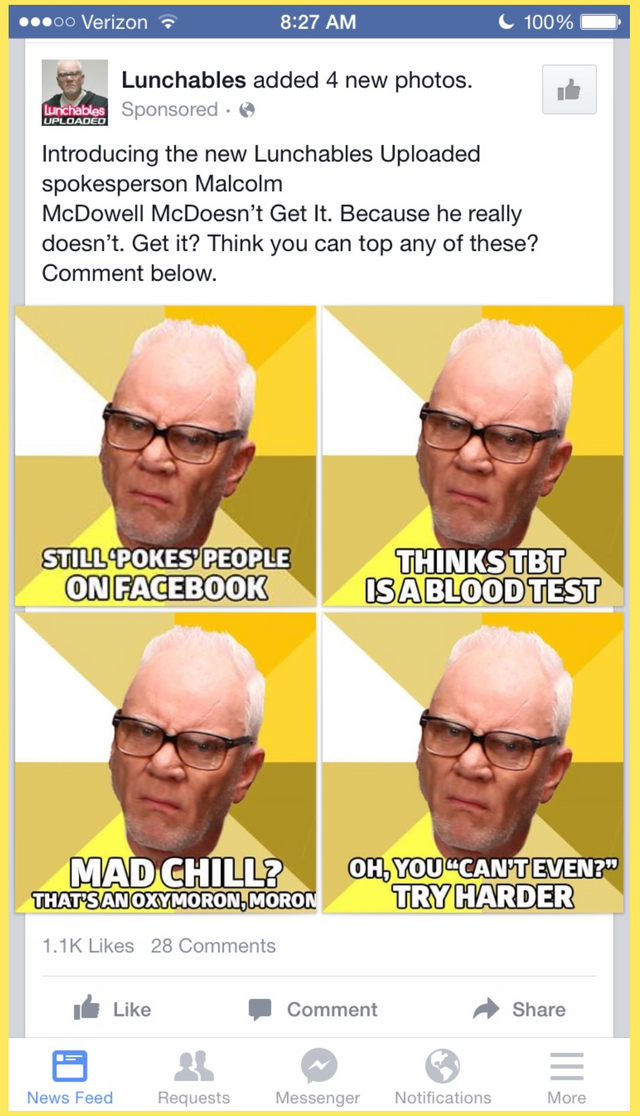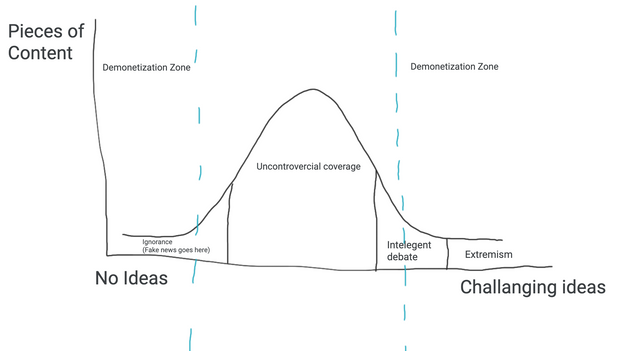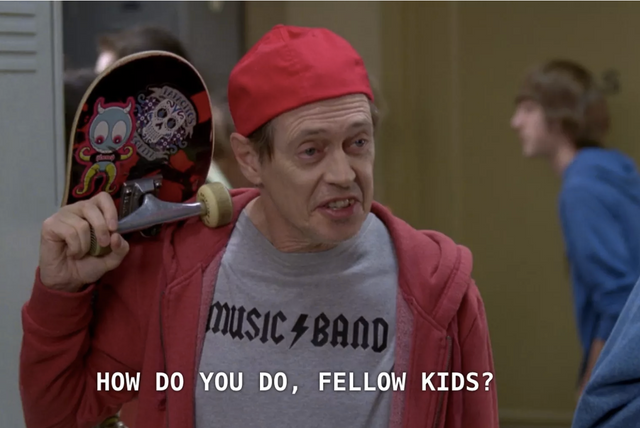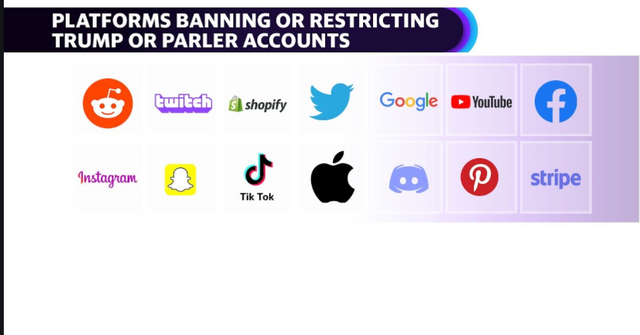The following is the first in a series of informal personal essays exploring the interplay of technology, government and social trends. I can't say I'm an expert on everything I'm talking about so please feel free to correct any misinformation or incomplete ideas. I am an American living in a major city but will try to be cognizant of other value sets and my own biases.
At its core, the internet is empty space. It's a space where ideas are shared, critiqued, and built off of all in rapid succession. Impermanence online lends itself to this process as anything can be modified and re-shared for scrutiny without destroying the original. Having ones ideas challenged (or validated) at near instant speed has been the cornerstone of a massive paradigm shift for us as a collective people. While we are a species of vast and vibrant differences, we are all now, for better AND for worse, children of the internet.
I remember my childhood in post suburban sprawl (I know boo hoo poor me) and how lonely it could be. We were kept inside at all costs, coddled and pushed to be, "excellent," or a "leader." Our lives were defined by academic and extracurricular achievement. I'd strongly recommend watching Wisecracks piece on "How Boomers Scarred a Generation." for a more in depth look into this phenomena.
The internet was an escape from all that. It was a place where we could fail safely and out of the watchful eyes of our parents. We shared funny pictures, links to random websites like zombo.com, we watched "epic fail" videos, funny cats, Charlie Bit My Fingers, badgers and mushrooms, but most of all, more than anything, we found communities. We found people like Ze Frank, or the Vlogbrothers, or iJustine who built and nurtured communities that were able to accomplish some genuinely wonderful things. For a look at what the internet was like just 10 years ago, check out this video from the co-founder of VidCon, John Green:
Ze Frank in particular was one of the first people who discovered the internet's amazing ability to let people "feel and be felt" across oceans. I hope to go deeper into the early history of the internet in future essays.
Ze frank basically invented everything fun about the internet, including what we now know as "vloging." TikTok's direct to camera format would likely not be so appealing had Ze Frank not established the language for it some 20 years ago. I hope one day the world recognizes him for his profound contributions to what is good on the internet...and what is bad. Which brings me to the question every entrepreneur was thinking in 2010 when Ze was giving this Ted Talk: "Cool, how can I make money off it?"
Sometime around 2013, Ze quit vlogging to run the video arm at Buzzfeed. Looking back to Buzzfeed before Ze, it was the worst kind of internet...stuff. Our facebook feeds were full of clickbait-y buzzfeed articles with little to no substance, or even worse "quizzes" that would just tell you you are a random Disney character or whatever they plugged into their formula that day. Buzzfeed NEEDED content people actually liked, and Ze, more than anyone, understood the language of the internet at the time, as it was his language. I don't mean to shame Ze for making a business decision or claim that his work was in some way harmful to the audience; but he laid the blueprint for what profitable content on the internet should look like.
- Make it short
- Make it visually stimulating or funny
And most important of all: - Make it weird
The internet naturally breeds a lot of weird stuff. I'd compare this weirdness to random mutation in nature. As ideas are remixed and respun online, some weird mutations can fall out. Sometimes this weirdness is a pure stroke of genius, exhibit A:
other times it's just weird and we move on.
So what's the point of all this useless internet history? The point is that the internet itself isn't something to be scarred of, and it's not a place where genuine communities can't form and un moderated dialogue is impossible. Yes, there were always trolls, people saying sick disgusting things in the comment section, but they were just that, trolls. We dealt with them by treating them as such, we left them under the bridge and moved on. So what changed? When did trolls become terrorists breaking into the US capitol?
Advertising.
Marketing interests destroyed the idea of the functional online community.
Advertisers realized they could capitalize on the organic weirdness of the internet by introducing internet style weirdness to the language they used. Early attempts were pretty comical as they struggled to speak "internet weird"

But eventually they became difficult to discern from genuine internet weirdness. The most efficient way to blend in as an advertiser on the internet is to hitch your brand to someone who has genuinely grown their audience. We call these people "influencers", but for the most part, any advertiser can partner with an influencer if the money is right, so the real influencers are the advertisers themselves. The result is a vast online wasteland where accounts compete for advertiser's dollars and as an extension, advertiser's language. Having worked in advertising for many years, I can say with some degree of certainty that the language of advertising does not go hand in hand with intellectualism. It's designed specifically to say nothing while giving people a canvas for their own feelings. As much as I want to delve further into the influencer paradigm, this is also a topic for another essay. In short, the antithesis of advertising is strong opinions, ideals and risks. Where advertisers are present, these qualities are hard to come by. Advertisers are the gatekeepers of the modern internet yet their values fly contrary to everything the internet originally stood for. I'd strongly recommend watching Hank Green's very long rant about how this has played out on YouTube. This was about 4 years ago and unfortunately most of his fears have come true:
Some things that can you demonetized on YouTube in 2021: Swear words, any mention or allusion to sex, any mention or depiction of weapons of any kind, any mention or depiction of drugs, any copyrighted content. To that last one, one might say, "well sure if someone owns that content someone else shouldn't be allowed to profit off of it." Which, fair enough, but it virtually guarantees that that piece of content gets put through the internet cycle of remix and evolution in shorter form, harder to weed out instances, rather than well intentioned, generally higher quality, work that comes out of longer form content. To translate: adverting interests push controversial topics onto platforms that are not well suited to deal with them. Broad stroke demonetization does help limit the trolls but it has no way to discern an intelligent conversation about gun control from an extremist call to arms.
If we were to graph online content by the strength of their ideals I suspect it would look something like this:

With the vast majority being simple, uncontroversial but also not very interesting pieces of work. I think a good example of this kind of content is the "Now This" channel (owned by MSNBC) which basically regurgitates ideas that appeal to mainstream liberals with no sort of educated debate or commentary. Side note, I'm not attacking liberal causes, just the way that they are packaged up and regurgitated to be more "postable" by certain media outlets. Liberal ideas are usually by definition complex and take more time to understand than a short post which is why the right does so much better online than the left.
On the left and right of the bell curve are "demonetization zones" areas where platforms make life uncomfortable for content creators. While yes, I don't like seeing fake news and extremism, what platforms are effectively doing is pushing fake news and extremism on to other platforms that will host their views. Exacerbating the problem is the fact that alternative platforms, like Parlor, lack the greater context of a platform that reflects mainstream societal views as they are almost exclusively made up of castaways from either side of the chart above. Someone new to Parlor will become radicalized far faster than someone new to facebook as the extremist views are at least on the same platform as more mainstream ones. If anyone has research that supports or refutes this claim I'd love to read
"Cyber-balkanization is a characterization of the Internet as splintering and dividing due to various factors, such as technology, commerce, politics, nationalism, religion, and divergent national interests."
souce: https://en.wikipedia.org/wiki/Splinternet
I find it also important to mention that that significant slice of the "intelligent debate" section of the graph will not find an alternative platform because of the radicalism and instead will just become apathetic.
I want to provide a case study of these forces in action.
Enter our good friend, Pepe the Frog. Pepe started his online life as a meme, sucked up by the natural organic what I'll call "old" internet. Much like many symbols and images before him, he was memed every which way, so far so good. "His original user base started to grow jealous, like possessive hipsters annoyed at the breakout success of the band they liked before they were cool. So they began to post Pepe memes with bizarre, offensive and often, outright racist themes, in a crude attempt to turn him away from the masses and back into the underground."
Quick tangent: Most of us on the internet know the difference between the post, and the comment section. If you scroll down to the comment section, you're gonna see some bad stuff, it's a rule of life, like don't get in the white van, or don't drink the yellow snow.
At this point, racist Pepe was in the comment section. Just a symbol being used by trolls, but that changed when it was mentioned by an advertiser. That advertiser being Hillary Clinton, in the midst of the 2 year advertisement known as a presidential campaign. For the majority of us on the internet is was a "How do you do fellow kids" moment, similar to the lunchables memes above.

Pepe wasn't a symbol of hate for the alt right, he was a symbol of the left's tonedeffness to the online world, a paradigm that went on to cost Hillary the election. If you're alt right, fuck outa here, don't use this to validate your hate
To summarize:
-Something happens naturally on the internet
-This provokes a controversial response
-The response gets picked up by people ignorant of how the internet works
-The response becomes the new base that internet mutation happens on
-Repeat
The continuous bastardization of internet culture by commercial interest creates an environment online that is toxic, and a language and level of discourse that is incoherent.
This is where the story of last week begins.
For those of us on the internet, the events of last week were more an eventuality than a surprise. I think all of us to some degree expected there would be a violent revolt from the Trump extremists at some point. The revolt itself, although we can't understate the tragedy of those lives lost, on both sides but especially in law enforcement, was largely performative. The vote or senators were never in any imminent danger and most of the terrorists had absolutely no idea what to do once inside. What it did do was put a very real face on something that had been just a virtual idea building for a very long time. This is just the tip of an iceberg that will not go away no matter who is "banned" from various platforms or what platforms themselves are banned entirely.
And so, finally, I'm brought to this image:

He's since been banned from many many more.
Not that I don't love the idea of Trump opening up his phone and not being able to do anything. I really, really, REALLY do. I just worry about what it means for the rest of us. The internet has become no longer a collection of people but a collection of platforms. These platforms do some really really wonderful things, but those things come at a cost. This week confirmed that online spaces are real spaces. We need to start thinking of them as such. From data mining to content moderation, all actions by internet conglomerates should be viewed through this lens.
Imagine, for a moment, that an unnamed mega corporation owned a city. Let's call that city.... "Amazon presents: New York City!" What would the streets of APNYC! look like? Who would be allowed to live there? What would those people be allowed to say? The unnamed mega corporation owns the city, so it's perfectly within their right to regulate these things as they see fit. This is not an argument that platforms legally can't censor free speech, they absolutely can. What I'm describing is a corporate autocracy, and somehow America, land of the free, has accidentally become one.
Especially in a world where many of us are working over the internet, we need to start looking at internet access as a new fundamental human right for the 21st century. If a student is banned from Zoom, how can they have equal access to education? If a business is banned from using Amazon Web Services, how can it compete with every business that can? Many studies have demonstrated the link between internet access and economic development:
These dependancies will only become clearer as more and more of our lives move into virtual spaces. Especially missing from online spaces in America are rural communities and communities below the poverty line. A paradigm that, like so many others in this country, disproportionately hurts minorities. Major online platforms ARE the internet. Imagine using the internet without Google!
The destruction of meaningful online communities has allowed advertisers to treat the internet as their playground. We don't let advertising into our homes, we don't let it into our private gatherings and community spaces.
We need online spaces that are advertiser free and we need them now.